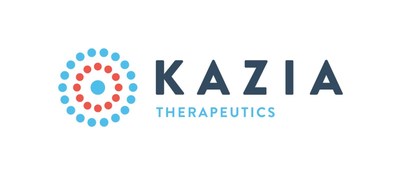Kazia to Collaborate with Pacific Pediatric Neuro-Oncology Consortium (PNOC) for New Paxalisib Combination Study in DIPG
Kazia Therapeutics Limited (NASDAQ: KZIA) announced a partnership with the Pacific Pediatric Neuro-Oncology Consortium (PNOC) to initiate a clinical trial, PNOC022, focusing on therapies for diffuse midline gliomas, including DIPG. The trial will evaluate multiple therapies, including Kazia's paxalisib, using an adaptive design to streamline assessment. Commencement is expected in early 2021, pending regulatory approvals. This study builds on promising data from previous research and is fully funded by PNOC, showcasing a collaborative effort to advance treatment options for pediatric brain cancer.
- Collaboration with PNOC to enhance clinical trial capabilities.
- Adaptive trial design improves efficiency in evaluating treatment combinations.
- Study is fully funded by PNOC, reducing financial burden on Kazia.
- Dependence on FDA and Institutional Review Board approvals may delay initiation.
- Lack of proven efficacy in drug treatments for DIPG reported historically.
SYDNEY, Dec. 10, 2020 /PRNewswire/ -- Kazia Therapeutics Limited (ASX: KZA; NASDAQ: KZIA), an Australian oncology-focused biotechnology company, is pleased to announce that it has executed a Letter of Intent with the Pacific Pediatric Neuro-Oncology Consortium (PNOC) to launch a clinical trial of multiple therapies, including Kazia's investigational new drug, paxalisib (formerly GDC-0084), in diffuse midline gliomas including diffuse intrinsic pontine glioma (DIPG).
The new clinical trial, PNOC022, will employ an adaptive trial design to test several therapies in different combinations and in different subsets of patients. In addition to paxalisib, the other therapies involved will initially include ONC201, manufactured by Oncoceutics, Inc, and panobinostat, manufactured by SecuraBio, Inc. The study is expected to open initially in the United States and will then expand to other countries during CY2021.
Key Points
- PNOC022 uses cutting-edge clinical trial design to efficiently and rapidly evaluate combination therapies in DIPG, under the leadership of world experts in the field
- Lead investigator is Professor Sabine Mueller, a leading paediatric neuro-oncologist and co-founder of PNOC
- Study is guided by Australian research at University of Newcastle, under leadership of Associate Professor Matt Dun, who serves as a scientific advisor
- Combination approach builds on recent positive data from St Jude SJPI3K study (NCT03696355) with paxalisib as single agent in DIPG, and brings together several of the most promising candidates in the global pipeline for DIPG
- Kazia will provide paxalisib investigational product; study is fully funded by PNOC
Kazia CEO, Dr James Garner, commented, "DIPG and diffuse midline gliomas have emerged as an exciting second front in the development of paxalisib as a brain cancer therapy. Work by Dr Chris Tinkle and colleagues at St Jude Children's Research Hospital has taught us a great deal about how to use this drug in a paediatric population. In parallel, extensive laboratory research by Associate Professor Matt Dun and colleagues has generated a rich and comprehensive data set to inform combination use. We are delighted to now have the opportunity to work with the PNOC team to bring these insights together and to take paxalisib into the next chapter of its development as a potential therapy for DIPG."
Clinical Trial Design
PNOC022 will enrol children and young adults with diffuse midline gliomas, a category of brain tumours that includes DIPG. The study will include separate cohorts comprising patients with newly diagnosed disease, patients who have completed initial radiotherapy, and patients who have experienced disease progression after treatment.
At the outset, all patients will be treated with ONC201, combined with either paxalisib or panobinostat. The study employs an adaptive design, in which different arms will opened and closed based on emerging preclinical and clinical data. The primary endpoint will be the proportion of patients progression-free at six months (PFS6) for newly diagnosed patients, and overall survival (OS) for recurrent patients.
The lead investigator will be Professor Sabine Mueller, a board-certified neurologist and paediatric neuro-oncologist whose research focuses on novel therapies in childhood brain cancer. Professor Mueller holds an academic appointment in the Department of Neurology, Neurosurgery and Pediatrics at the University of California, San Francisco (UCSF) and serves as head of the clinical programme at the DMG Centre at the Children's Hospital of the University of Zurich. She obtained her medical degree from the University of Hamburg, and also holds a PhD in molecular biology.
Professor Mueller commented, "DIPG remains one of the most challenging of childhood cancers. No drug treatment has ever demonstrated meaningful efficacy. The PNOC022 study brings a different approach, uniting the best of preclinical research with novel clinical trial techniques. We look forward to commencing enrolment to the study shortly, and very much hope that we are able to generate new hope for patients and their families."
Commencement of the study remains subject to execution of a definitive contract and is dependent on approval by the US FDA and Institutional Review Boards. It is expected that PNOC022 will initially open in the United States in 1H CY2021, with expansion to other countries taking place in CY2021. Discussions are ongoing regarding the potential inclusion of Australian sites in the study.
Australian Scientific Research
The design of the PNOC022 study has been extensively informed by laboratory research in DIPG, and in particular by research undertaken at the University of Newcastle, Hunter Medical Research Institute (HMRI) by Associate Professor Matt Dun and colleagues. The HMRI team has conducted laboratory research with paxalisib for several years and has generated a powerful body of data combining paxalisib with other investigational drugs. This research has been partly funded by RUN DIPG, a not-for-profit organisation led by Associate Professor Dun, the DIPG Collaborative, Defeat DIPG Michael Moiser Foundation and the McDonald Jones Foundation. The robust mechanistic data is expected to be published in high impact scientific journals in coming months.
Pacific Pediatric Neuro-Oncology Consortium (PNOC)
The Pacific Pediatric Neuro-Oncology Consortium (PNOC) is an international consortium, with study sites in the United States, Canada, Swizterland, Europe, India, Israel, and Australia. PNOC is dedicated to bringing new therapies to children and young adults with brain tumours, using the latest scientific understanding to inform a personalised medicine approach.
PNOC comprises 225 leading specialists in childhood brain cancer and is currently driving sixteen international clinical trials. In Australia, the organisation collaborates closely with the Australia and New Zealand Children's Hematology / Oncology Group (ANZCHOG). PNOC's research is substantially supported by the PNOC Foundation, the Pediatric Brain Tumor Foundation, and other not-for-profit entities.
Paxalisib Clinical Program
The initiation of this trial will bring the number of ongoing clinical studies of paxalisib in brain cancer to eight.
Indication | Phase | Sponsor | Registration |
Glioblastoma
| II | Kazia Therapeutics | NCT03522298 |
Glioblastoma | II / III | Global Coalition for Adaptive Research | NCT03970447 |
DIPG & DMGs
| I | St Jude Children's Research Hospital | NCT03696355 |
DIPG & DMGs | N/A* | Pacific Pediatric Neuro-Oncology Consortium | (TBD) |
Breast Cancer Brain Metastases | II | Dana-Farber Cancer Institute | NCT03765983 |
Brain Metastases
| II | Alliance for Clinical Trials in Oncology | NCT03994796 |
Brain Metastases
| I | Memorial Sloan-Kettering Cancer Center | NCT04192981 |
Primary CNS Lymphoma | II | Dana-Farber Cancer Institute | (TBD) |
*Note - the PNOC022 has not adopted a 'phase' designation and is described as an 'adaptive platform study'
Next Steps
Recruitment to this study is expected to commence in 1H CY2021.
![]() View original content to download multimedia:http://www.prnewswire.com/news-releases/kazia-to-collaborate-with-pacific-pediatric-neuro-oncology-consortium-pnoc-for-new-paxalisib-combination-study-in-dipg-301190108.html
View original content to download multimedia:http://www.prnewswire.com/news-releases/kazia-to-collaborate-with-pacific-pediatric-neuro-oncology-consortium-pnoc-for-new-paxalisib-combination-study-in-dipg-301190108.html
SOURCE Kazia Therapeutics Limited
FAQ
What is the purpose of the PNOC022 clinical trial by Kazia (KZIA)?
When will the PNOC022 trial for Kazia (KZIA) begin?
What therapies will be tested in the PNOC022 trial by Kazia (KZIA)?
Who is leading the PNOC022 trial for Kazia (KZIA)?








